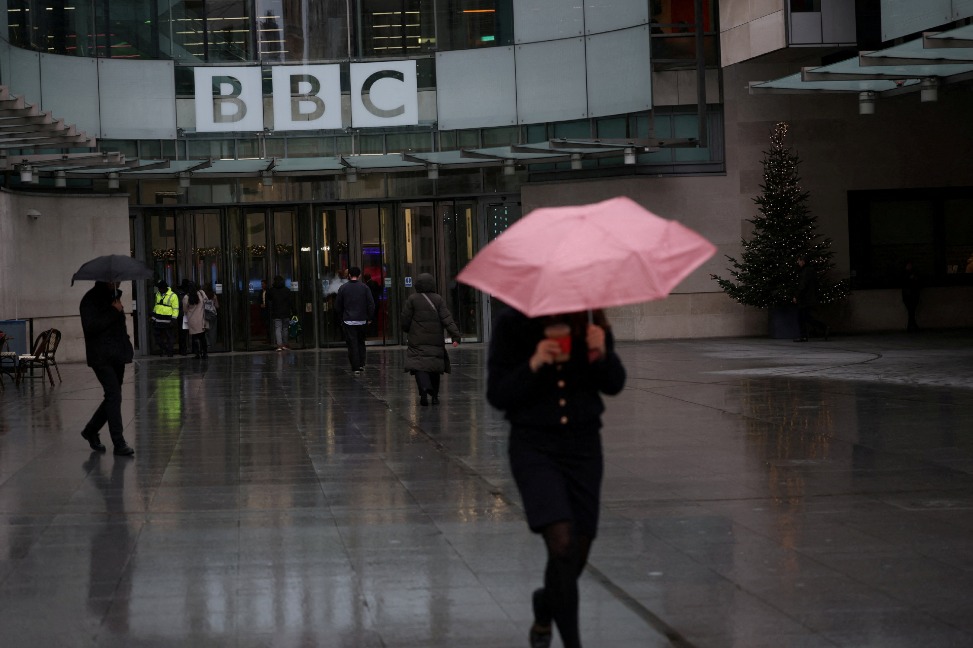US stocks open lower after new jobless claims come in slightly higher than expected

US stocks opened slightly lower Thursday as the rally cooled following a slightly larger-than-expected number of first-time jobless claims.
A total of 1.877 million workers filed unemployment claims last week, boosting the total to about 42 million since March, the US Labor Department reported.
Economists surveyed by Dow Jones expected 1.775 million new claims to be filed.
But it's the first time the number of initial claims has dipped below 2 million since the government-ordered economic shutdown began in mid-March, suggesting the worst is over.
However, the unemployment rate, the measure of those receiving benefits compared with the total labor force, increased half a point to 14.8 percent.
Continuing claims, which offer a better picture of how many workers remain unemployed, grew by 649,000 to 21.5 million.
Despite signs of a rebound, many analysts believe it will take years for the labor market to fully recover.
On Wednesday, ADP's report on private sector payrolls showed 2.76 million workers lost their job in May. That's higher than any number before the coronavirus pandemic, but rate of increase continued to decline.
Mark Zandi an economist at Moody's Analytics, said the continued decline in the number of jobs lost showed that the "Covid-19 recession is over."
ADP and Moody's collaborate to provide the private second jobs report.
Stimulus spending and optimism about restarting the economy lifted stocks earlier this week and sent the Dow up more than 500 points Wednesday.
But civil unrest and looting may crimp the re-opening of retail stores. In New York, Macy's and expensive boutiques were heavily damaged.
In view of the uncertainty, some investors apparently sought to lock in gains, sending two major indexes lower Thursday.
Much uncertainty remains, despite encouraging signs about the economy.
American Airlines said it will fly 55 percent of its domestic schedule in July, up from the 20 percent it flew in May compared with a year earlier.
"We're seeing a slow but steady rise in domestic demand," Vasu Raja, senior vice president of network strategy for the carrier, said in a statement. "After a careful review of the data, we've built a July schedule to match."
In April, American averaged 32,154 passengers per day. Traffic increased to 78,178 May 1 to May 28 and grew to 110,330 between May 24 and May 29.
United Airlines plans to increase its July schedule to about 26 percent of what it flew the same month a year ago.
Nevertheless, the US Transportation Security Administration said the overall number of passengers and flight crew screen at domestic airports is down about 85 percent from a year earlier.
OAG, a provider of global travel data based in England, said the four largest US carriers – American, Delta, Southwest, and United – are increasing the number of flights in June by 27 percent from May.
Most of the increase comes from additional domestic flights. Demand remains lower on international flights due to lingering fears of the coronavirus.
In early trading, American failed 11.01 percent; Delta gained 5.44 percent; Southwest added 3.32 percent; and United gained 4.23 percent.
The Civil Aviation Administration of China announced Thursday that beginning June 8 it will permit all foreign airlines to operate one flight a week. Carriers will chose from a list of 37 cities, including Beijing, Shanghai, Shenzhen Guangzhou and Chengdu.
Officials made the statement about 12 hours after US President Donald Trump barred Chinese passenger flights to the US starting June 16. The order could take effect sooner.
If passengers test negative for three weeks in a row, the foreign airline will be permitted to add one additional flight per week. But if five or more passengers test positive for Covid-19, the carrier must suspend the flight for a week, Chinese officials said.
In early trading Thursday, the Dow Jones Industrial Average lost 14.44 points, or 0.06 percent, to 26,253.21. The S&P 500 slipped 0.07 percent. The Nasdaq Composite edged up 0.08 percent
On Wednesday, the Dow gained 527.24 points, or 2.05 percent, to 26,269.89. The S&P 500 rose 42.05 points, or 1.36 percent, to 3,122.87. The Nasdaq Composite added 74.54 points, or 0.78 percent, to 9,682.91.
Oil prices slipped on fears that OPEC won't extent current production cuts beyond June. OPEC delayed Thursday's planned meeting and may not convene until mid-June.
On Thursday, West Texas Intermediate Crude oil futures, the guide for US prices lost 1.58 percent to $36.67 a barrel. Brent crude, the worldwide benchmark, fell 1.01 percent to $39.40 a barrel.
US oil prices, a proxy for future economic activity, briefly turned negative during the worst of the coronavirus shutdown as demand collapsed and supply exceeded storage capacity.
Analysts at Raymond James downgraded Planet Fitness, operator of about 2,000 fitness centers nationwide, to a "market perform" rating, citing concerns about valuation.
"While we continue to believe (Planet Fitness) is well-positioned for longer-term growth and market share gains, we also believe valuation has become stretched, particularly given the number of uncertainties at this point regarding the pace of recovery," Raymond James said in a research note to clients.
The stock has gained about 34 percent in the last month as states began to reopen their economies.
In early trading Thursday, shares of Planet Fitness fell 2.36 percent.
Simon Property Group, the largest owner of shopping malls in the US, sued the Gap for allegedly skipping about $65.9 million in rent payments during the coronavirus pandemic.
The lawsuit, filed in Delaware state court, underscores the growing rift between commercial landlords and tenants. Many retailers stopped paying rent as sales collapsed during the government-imposed economic shutdown.
The problem isn't limited to these two companies and more lawsuits are likely to follow.
In early trading Thursday, Simon Property Group slid 0.30 percent while the Gap lost 2.85 percent.































